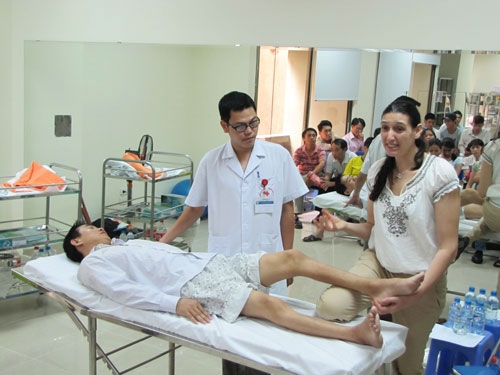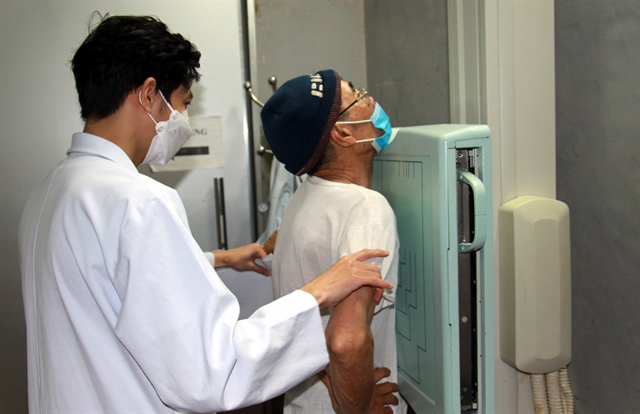 Society
Society

Some 6,000 people in Việt Nam suffer from hemophilia, but more than 60 per cent have yet to be examined for the disease, experts said at a press conference yesterday.
 |
| A patient with haemophilia receives treatment at the National Institute of Haematology and Blood Transfusion in Hà Nội. — Photo xzone.vn |
HÀ NỘI (VNS) — Some 6,000 people in Việt Nam suffer from hemophilia, but more than 60 per cent have yet to be examined for the disease, experts said at a press conference yesterday.
“Việt Nam has taken a big step forward in terms of care and treatment for hemophilia and patients with bleeding disorders. However, numerous challenges still remain as only 2,737 hemophilia patients have been detected and are undergoing treatment programme,” said the National Institute of Haematology and Blood Transfusion director Nguyễn Anh Trí.
“To date, there was no cure for the hereditary blood disorder. Hemophilia patients have to live with the disease due to their need for blood transfusions their entire life,” Trí said at a press conference on the occasion of the World Hemophilia Day, which falls on April 17.
“However, with early diagnosis, proper treatment and self-care, most people with hemophilia can maintain an active, productive lifestyle,” Trí said.
Many patients are unaware of hemophilia due to the lack of information and knowledge on the blood disorder. Most of the patients faced financial problems due to the costly treatment, while many of the drugs needed for treatment were not covered by health insurance, according to Trí.
The Hemophilia Centre Director Nguyễn Thị Mai said that Việt Nam currently has only seven hospitals in the country that could provide treatment for patients with hemophilia. Some patients who lived at a distance from the hospitals, were treated at their home or were put under a preventive treatment programme.
Mai said that the centre will focus its activities on developing programmes on patient registration and treatment, integrating the treatment with other healthcare programmes and improving the quality of diagnosis, treatment and management programmes in the coming years.
Hemophilia is a blood disorder that slows down the blood clotting process. People with this condition experience prolonged bleeding or oozing following an injury, surgery, or after having a tooth pulled out. Serious complications can result from bleeding into the joints, muscles, brain, or other internal organs.
The Hemophilia Day 2016 aims to raise awareness about the disease and other inherited bleeding disorders in efforts to increase patient’s access to diagnoses and treatment. — VNS








